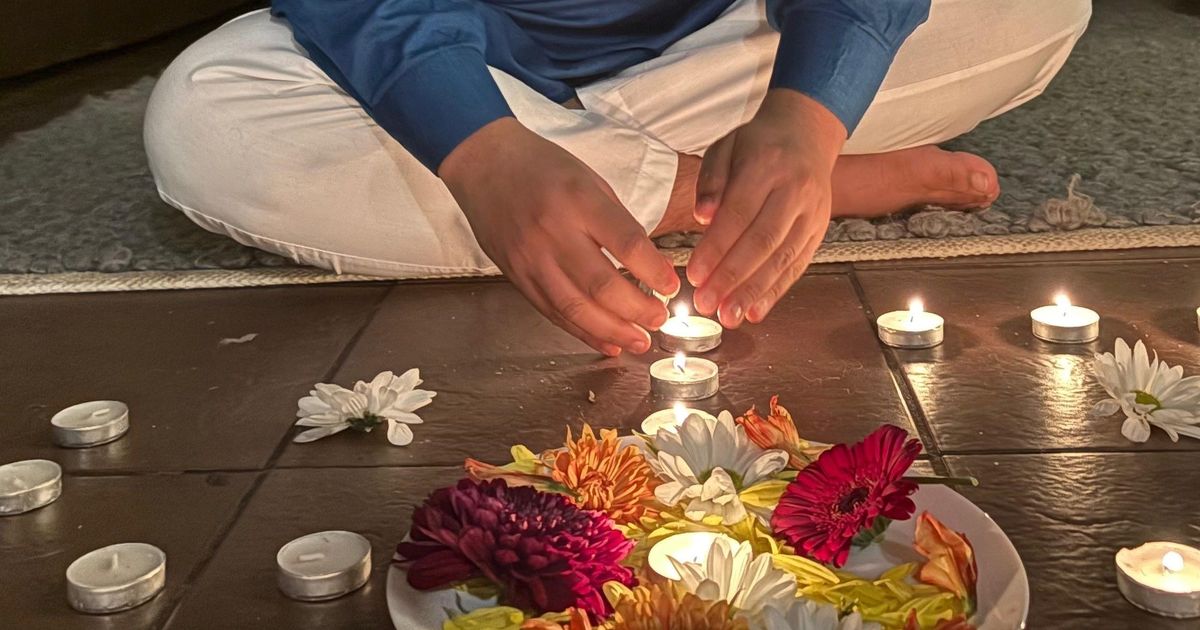As an immigrant it first felt very unnerving celebrating Diwali away from home but this is how I learned to celebrate it in Wales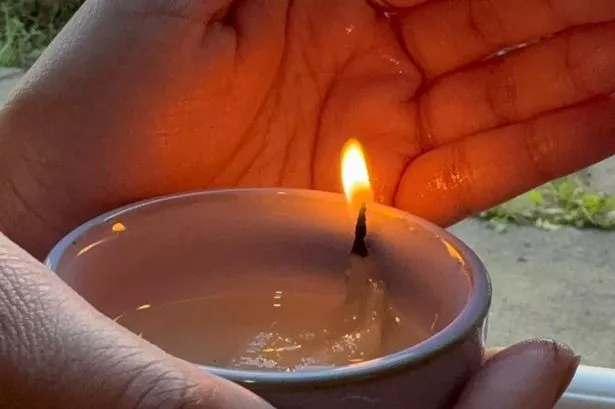 Diwali, or Deepawali, gets its name from ‘deepak’ or ‘diya’, an earthen lamp fuelled by a cotton wick and cooking oil(Image: Shaurya Shaurya)
Diwali, or Deepawali, gets its name from ‘deepak’ or ‘diya’, an earthen lamp fuelled by a cotton wick and cooking oil(Image: Shaurya Shaurya)
The festival of lights, Diwali, is almost upon us, and with it all the joy and togetherness it brings. Though best known by Hindu tradition it does not belong to a single culture.
It is celebrated by Sikhs as the ‘Bandi Chhor Diwas’ (Day of Liberation), by Jains to mark the day their supreme spiritual teacher Bhagwan Mahavira had his spiritual awakening, and by several other cultures across the world. Most of all it is a day when people adorn their houses with lights to ward off darkness and celebrate a day of unity and piousness.
There are several communal events to celebrate the festival each year. However for thousands of immigrants like me it presents an annual conundrum: how do you celebrate a festival of togetherness when those you love most sit thousands of miles away?
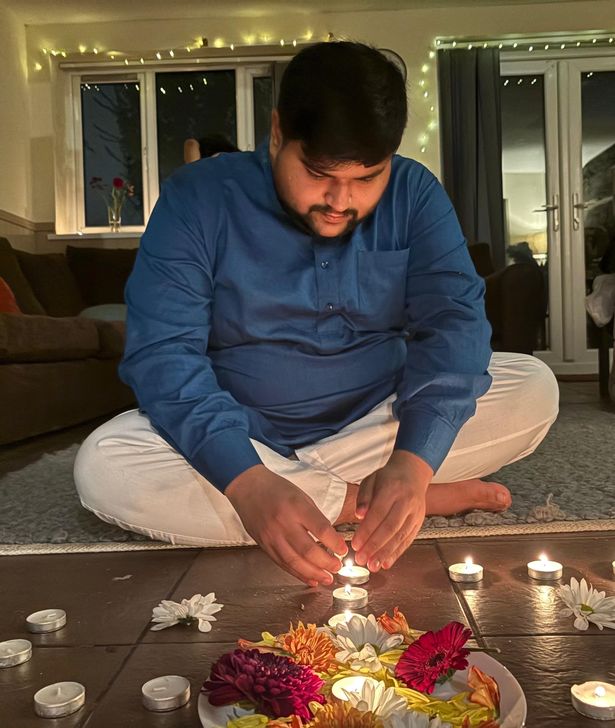 Diyas are an important symbols of warding off darkness. We couldn’t find many so we replaced them with tea lights(Image: Shaurya Shaurya)
Diyas are an important symbols of warding off darkness. We couldn’t find many so we replaced them with tea lights(Image: Shaurya Shaurya)
In my years of living in Wales the answer has been very simple: all you need to celebrate Diwali is people. For the biggest stories in Wales first sign up to our daily newsletter.
They can be fellow stragglers away from home or people who have welcomed you into their home.
I don’t do anything different to celebrate Diwali than what I used to do in India.
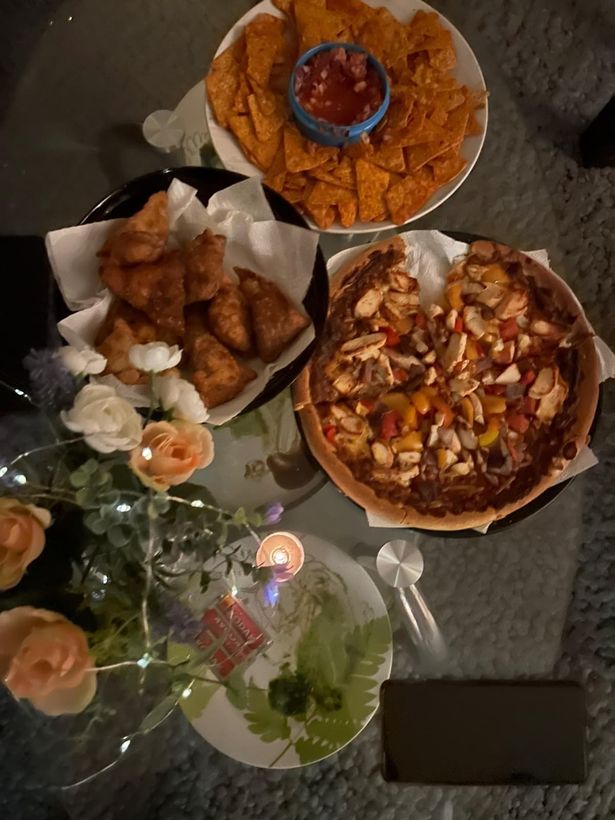 Diwali is not complete without good food and everyone pitched in to bring their best to the table(Image: Shaurya Shaurya)
Diwali is not complete without good food and everyone pitched in to bring their best to the table(Image: Shaurya Shaurya)
An important part of the festival is deep cleaning your home. It’s meant as a way to get rid of clutter, make way for new beginnings and welcome the goddess of prosperity and good fortune, Lakshmi, into one’s home.
Another important ritual is a prayer to the goddess Lakshmi, often done in the evening, where each family member sits together in an intimate setting to pray for the good fortune of the household.
This is the aspect I missed the most but the thing about togetherness is you have to feel it rather than experience it.
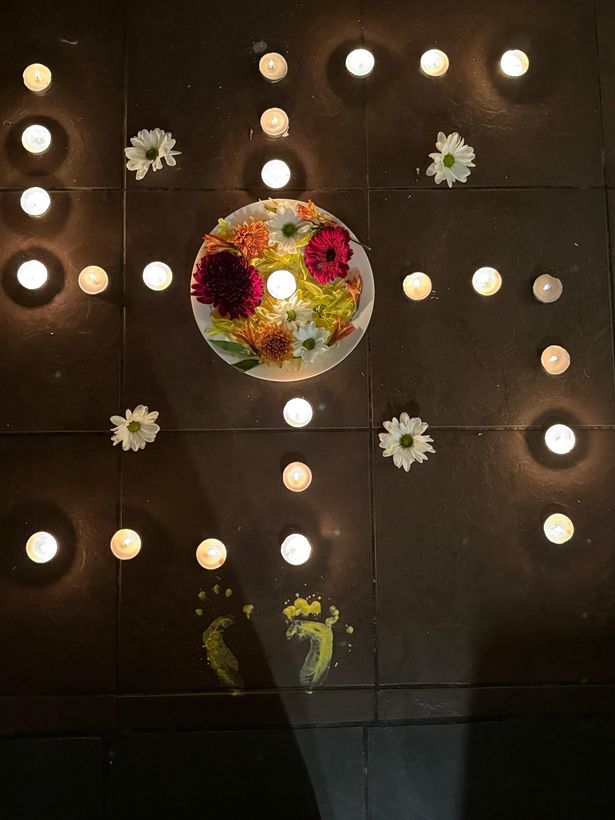 The Hindu Swastika, different from the one used by Nazis, is an important religious symbol of good fortune, wellbeing, and prosperity. The little feet painted at the bottom are supposed signify the footsteps of goddess Lakshmi coming into the house(Image: Shaurya Shaurya)
The Hindu Swastika, different from the one used by Nazis, is an important religious symbol of good fortune, wellbeing, and prosperity. The little feet painted at the bottom are supposed signify the footsteps of goddess Lakshmi coming into the house(Image: Shaurya Shaurya)
Though it’s not the same you can still feel it through your phone. Personally I feel it has only made my familial bonds grow stronger when me, my sister, and parents got on a video call from different corners of the world to offer our prayers in silence.
It’s not ideal but it offers a moment of togetherness in spite of the insurmountable distance – and isn’t that all Diwali is about?
It wasn’t all doom and gloom though as then came the festivities now they are held at a house in Cardiff with friends from different countries and regions.
It’s a joint effort though as we held a potluck. Everyone attending brought a different dish – home-cooked and served with a lot of love.
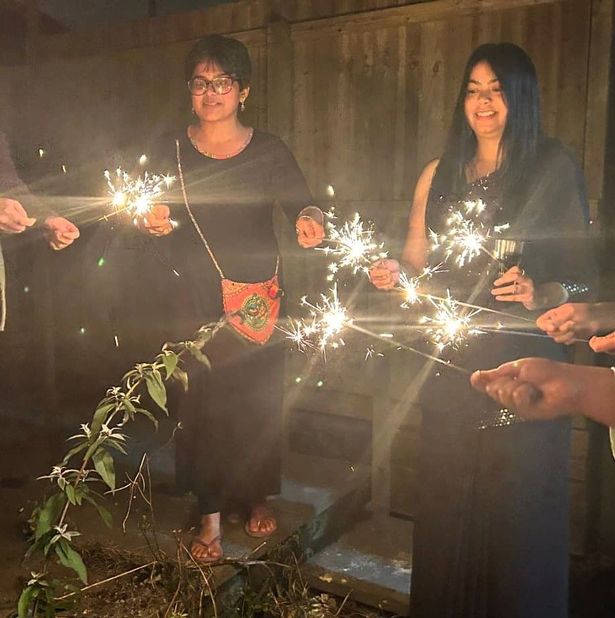 A little bit of sparkle never harmed anyone(Image: Shaurya Shaurya)
A little bit of sparkle never harmed anyone(Image: Shaurya Shaurya)
If you think that might lead to surprises it will as this is how I ate the most delectable dal I’ve ever had – and it was cooked by a Welshman!
Another Diwali tradition, though not as ancient, is the bursting of firecrackers. As we’ve become more aware of the impact they have on the environment me and my friends settled for some small sparklers.
So that’s the story of a Diwali celebrated 7,000 miles away from home with people who were strangers not so long ago.
My plans for this year aren’t much different: a few friends, delicious homemade food, a lot of lights, and a little bit of sparkle.
